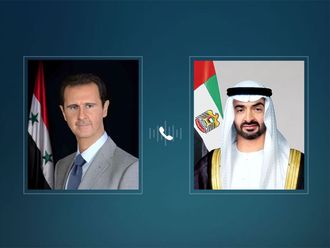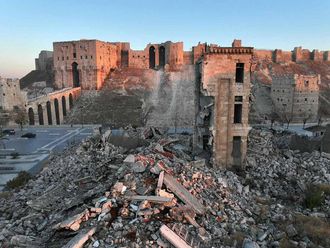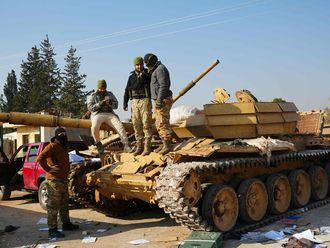
Baghdad: Powerful Shiite cleric Moqtada Al Sadr has agreed to support the bid by Iraq's prime minister to retain power, aides said on Friday, in a move that could speed an end to the seven-month political impasse and bring dealmaking that may give key concessions to Al Sadr's anti-American bloc.
The decision by Al Sadr would mark a significant boost for Prime Minister Nouri Al Maliki's Shiite-led coalition to secure enough parliament seats to form a new government.
Iraq has been in political limbo since March elections, won by a Sunni-backed bloc but without the majority needed to oust Al Maliki.
Three senior Al Sadr aides told The Associated Press that a formal announcement on backing Al Maliki's coalition is expected later on Friday.
A top official for Al Maliki's bloc confirmed that a joint press conference is planned with Al Sadr envoys to "announce the name of the nominee."
They all spoke on condition of anonymity because they were not allowed to brief reporters.
Meanwhile, Iraq on Friday surpassed the previous record for the country that has gone the longest between holding a parliamentary election and forming a government, experts say.
The Netherlands had held that unfortunate honour after a series of failed attempts left the country without an elected government for 207 days in 1977, according to Christopher Anderson, director of the Institute for European Studies at Cornell University.
Iraqis have now spent 208 days with no new government and, while the Dutch weathered their storm, Iraq's weak institutions may not hold up against mounting pressure and a steady level of violence.
Electorate
As politicians jockey for positions and broker deals in backroom meetings, many Iraqis now say they wonder why they risked their lives to vote on March 7.
US officials are increasingly concerned about the lack of an elected goverment. The most optimistic of Iraqi politicians expect the process to take at least another month.
"Iraq has very weak institutions and a caretaker government that can do very little. This makes for a potentially highly unstable and precarious situation," said Joost Hiltermann, a Dutch national and an expert on Iraq at the International Crisis Group.
Iraq's parliament members met once for less than 18 minutes in June but have been collecting their paycheques — about $10,000 (Dh36,700) a month — for more than three months. Iraq's ministers are afraid to make decisions when it is unclear who holds the key to their political future, and much government hiring is on hold.
Development plans
"We have no authority now," said Ali Baban, the minister of planning. Over the summer Baban, a member of Al Maliki's State of Law political bloc, announced a five-year National Development Plan with a target of 9.4 per cent annual economic growth and cutting down unemployment.
But Baban said it's nearly impossible to implement without legislative action.
The foreign ministry is unable to implement international treaties or agreements without a new government, and foreign countries are hesitant to deal with a caretaker government.
Foreign Minister Hoshyar Zebari said the United States must do more to break the deadlock. Zebari is a member of the Kurdish alliance, is wooed by both Al Maliki and Allawi. Other major issues are also unresolved.
Iraq has yet to pass an oil revenue sharing law and cannot implement Article 140 of the constitution to resolve disputed territories that Kurds and Arabs lay claim to.
Khalid Al Asadi, a legislator from Al Maliki's State of Law bloc, used an Arabic proverb to describe the US proposals for power-sharing. "If you try to satisfy everyone," he said, "you'll lose everyone."
— With inputs from AP
Unravelling the democratic process
Bagdad: Government formation in Iraq is complicated by both the country's multi-party system and violence in the streets.
Lawmakers are elected and in turn vote for the president, who gives the largest coalition in the parliament the first opportunity to choose the prime minister and form the government. That government needs a simple majority of the 325 lawmakers to back it.
Election day was followed by a slow trickle of results and weeks in which politicians accused one another of fraud. The extremely close tallies for the top two parties — former prime minister Ayad Allawi's Iraqiya bloc, which won 91 seats, and Shiite incumbent Prime Minister Nouri Al Maliki's State of Law bloc, which won 89 — has lead to months of tension.
Al Maliki's bloc agreed to form the largest coalition in parliament based on one interpretation of Iraq's constitution. Al Maliki was the assumed front-runner, but disputes within the coalition seem to have splintered Shiite politics.
Secular Shiite Allawi's Iraqiya bloc, largely backed by Sunni Arab constituents, promised to boycott the government if Al Maliki is nominated by the Shiite coalition. Allawi also still claims the right to form Iraq's government based on another interpretation of the constitution. A US-proposed power-sharing plan between the two men is all but dead.
—Washington Post












